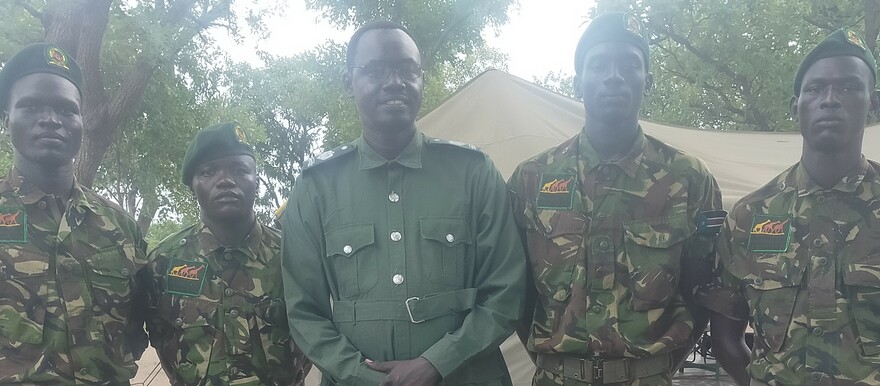A wildlife warden on Wednesday raised alarm over the increase in poaching and the cutting down of trees at the Badingilo National Park.
Speaking to reporters at the park, acting Warden, Maj. Butrus Simon, said the killing of the wildlife and deforestation have been exacerbated by the economic hardship in the country.
“The poaching activities inside the park are due to the current situation. You will find that many poachers kill the animals and cut the trees,” Simon said.
In August 2022, the African Parks signed a 10-year renewable agreement with the Government of South Sudan for the management of Boma and Badingilo National Parks.
Badingilo National Park wildlife includes lions, leopards, wild dogs, the endangered Nubian giraffes, elephants and 400 bird species.
The government of South Sudan is set to release the wildlife census on June 18, to be launched by President Salva Kiir.
Simon said they were working with the African Parks to sensitize the communities on the preservation of wildlife and the environment.
“We are here to license and coordinate the implementation of natural resources in South Sudan, especially in Badingilo Park. Currently, the park is managed by African Park as a partner, so we are here to coordinate and to supervise all the activities and make sure that the law enforcement is taking place in line with the conservation of the wildlife,” he said
“We engage the communities and implement the biodiversity conservation and the infrastructure development, as a result of which we are now witnessing many changes in Badingilo National Park,” he added.
The African Parks site manager at Lafon County, Eastern Equatoria, David Liwaya, said they normally experience intensive poaching during the dry season when the animals go to the communities in search of water.
“Poaching normally intensifies from November to April with the poachers killing mostly the reedbuck, because they migrate in large numbers in search of water and grass,” he said
The poaching was increasing as people look for ways of getting money and food. They use traps and guns, he said, pointing out that if the economy improved and the law was enforced more stringently, the menace would reduce.
A Bandingilo National Park Game Ranger, Benson Okwahi Juma, said they do community engagement on wildlife conservation.
“We go to the communities to talk to them about the importance of wildlife conservation and the impact of human activities within the national parks,” he said.
He acknowledged the support of the African Park with the logistical challenges of travelling from the headquarters to the communities for engagement.
The African Parks also involves the youth through scouting activities. They have recruited 34 boy scouts who underwent training and were now conducting several activities including tree planting.
Liwaya said the scouts plant trees and were sensitized on the importance of the wildlife and the landscape of the Badingilo National Park.
One of the scouts, David Onyango Abulu, 19, said their involvement was helping to protect the environment and keep the youth from crime.
“Scouting teaches us to refrain from criminal activities, it also helps us to protect the animals,” Onyango said.
A youth leader in Lafon County, Ukuk John Bakiading, said they faced many challenges in different areas where wildlife wandered from the parks to destroy crops and wreak havoc on the community.
“Some of the animals invade when the crops are almost ready for harvest, especially from July, October and September,” he said.




